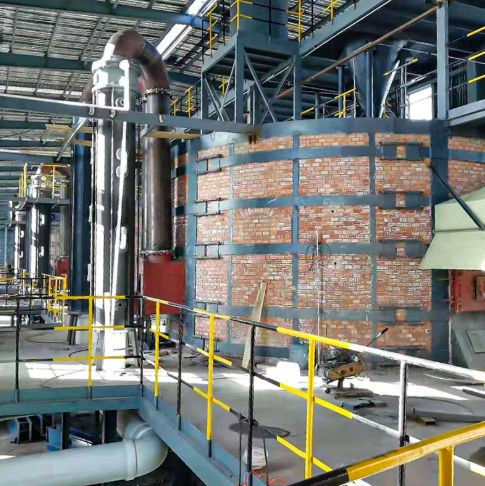
Market Demand for Potassium and Sodium Sulfates
Global Trends in Fertilizer Use
The worldwide farming sector has experienced an increase in the need for fertilizers due to the push for higher crop yields and food security assurance Recently potassium sulfate has gained recognition within fertilizers for its role in enhancing crop quality and disease resistance The primary technique for creating potassium sulfate is through the Mannheim Process involving the reaction between potassium chloride and sulfuric acid, under elevated temperatures This method represents around half to sixty percent of the supply and is a fundamental aspect of the fertilizer sector.
Growth in Industrial Applications
Potassium and sodium sulfates are not essential in agriculture but also have various uses in industries like glass production and textiles due to their unique chemical properties that make them vital in these sectors For example sodium sulfate plays a crucial role in detergent manufacturing by improving cleaning effectiveness The demand, from industries supplements their agricultural applications leading to overall market expansion.
Regional Market Dynamics
Different areas show levels of demand depending on their agricultural methods and industrial progressions. China and India lead consumption in Asia because of their agricultural sectors. Europe and North America also play a role in consumption specifically for industrial purposes. The Middle East is increasingly interested, in utilizing resources for manufacturing and exporting goods.
Benefits of Establishing a Production Line
Cost-Effectiveness of Local Production
Establishing a production line for potassium and sodium sulfates locally can lead to cost-saving benefits. Aoliande has organized production lines based on product types, such as Mannheim process potassium sulfate chemical equipment. Local production helps decrease reliance on imports and cuts down on transportation expenses while ensuring product availability. Furthermore, technological advancements have enhanced production processes, leading to reduced energy usage and operational costs.
Meeting Rising Market Demand
The growing need for fertilizers worldwide requires a supply network to meet the demand effectively. Companies can meet this increasing demand by setting up a production line to produce goods efficiently. Aoliande specializes in manufacturing GRP products and Mannheim furnace equipment to high-quality standards for both global markets.
Opportunities for Export
An established production plant not only serves the local market but also creates opportunities for international trade by exporting goods to regions with limited manufacturing capacity that heavily rely on imports, allowing companies to take advantage of this demand by selling top-notch products worldwide. The potassium fertilizer factory run by Aoliande in Inner Mongolia produces 160 tons every year, showcasing its capability to generate revenue through exports on a global scale.
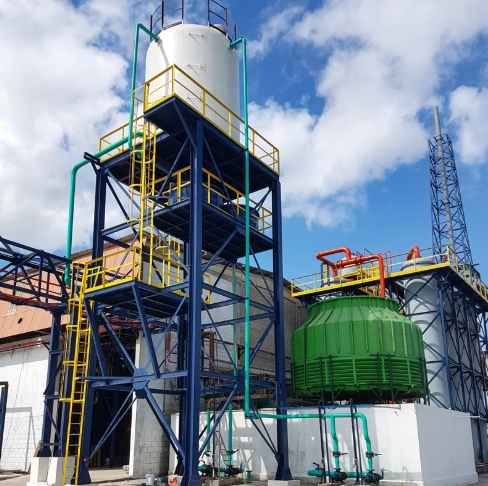
Technological Aspects of a Production Line
Machinery and Equipment Requirements
Effective manufacturing heavily relies on machinery for optimal productivity.With the K2SO4 Mannheim Process Potassium Sulfate Making Machine being widely recognized for its two production methods of Potassium Sulfate Product it is essential that the equipment guarantees uniform heating thorough reaction and minimal energy usage.Incorporating features such, as PLC automatic control systems enhances accuracy. Decreases labor expenses.
Raw Materials and Input Resources
Key ingredients such as potassium chloride (KCl) sulfuric acid and potassium bisulfate are used in the production process of obtaining potassium sulfate and hydrochloric acid through a two step reaction method, for ensuring product quality and cost efficient operations.
Economic Viability of Investment
Initial Setup Costs
When you decide to set up a production line for your business operation, you’ll need to invest an amount upfront for acquiring la, the machinery, and developing the necessary infrastructure. Fortunately, companies such as Aoliande Chemical Equipment Co., Ltd. specialize in creating Mannheim process plants. Offer budget-friendly solutions customized to meet your exact requirements.
Long-Term Profitability
Once up and running smoothly and efficiently the production line can bring in profits by taking advantage of economies of scale and meeting the steady demand, in the market. By incorporating cutting edge technologies it also boosts productivity. Helps to lower operational expenses gradually.
Return on Investment Projections
The increasing worldwide need for fertilizers and industrial chemicals makes investing in a potassium/sodium sulfate production line an opportunity with promising returns on investment (ROI). Businesses can anticipate income from sales, within the country and overseas markets, while also playing a role in boosting the local economy by generating employment opportunities and fostering technological progress.
Aoliande showcasing its expertise in producing Mannheim process machinery highlights the impact of technological advancements in fostering industry expansion and enhancing environmental sustainability via methods such, as recycling HCl waste effectively.
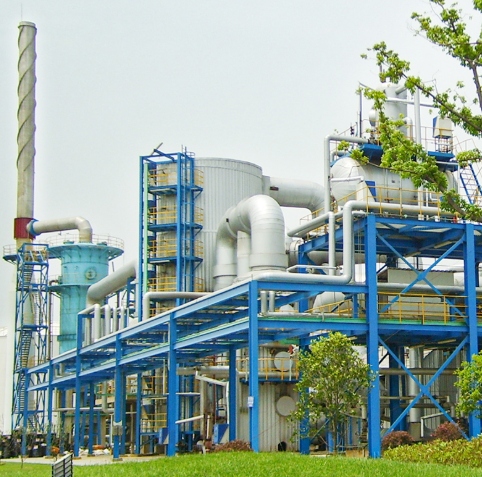
Environmental and Regulatory Considerations
Compliance with Industry Standards
When producing potassium and sodium sulfates in the industry sector, it is crucial for Aoliande to adhere to established standards to guarantee safe operations that are effective and environmentally friendly as well.
Environmental Impact Mitigation Strategies
Environmental issues play a role in chemical production processes. A method commonly employed in the manufacture of potassium sulfate, called the Mannheim process, produces side products like acid (HCl). In response to this challenge, Aoliande has introduced recycling systems to effectively manage hydrochloric acid waste and comply with regulations. They have also integrated materials in equipment design to boost energy efficiency and minimize emissions. The enhanced flue system, in the furnace, optimizes energy usage. Reduces coal consumption as well.
Manufacturers are also embracing dust feeding techniques in material handling to reduce air pollution and safeguard the well-being of workers, while Aoliande potassium sulfate production line integrates these advancements for improved operational efficiency and environmental sustainability.
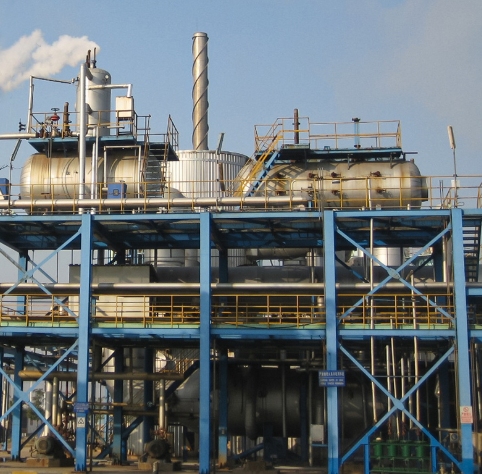
FAQ
Q: What challenges are associated with scaling up production?
A: Expanding production presents hurdles such as the substantial upfront expenses for equipment and infrastructure needed for the Mannheim Process that operates effectively at high temperatures.It is also essential to secure potassium chloride (commonly known as MOP) sulfuric acid, at rates to sustain profitability.
Ensuring product quality remains consistent during operations poses a significant challenge, but the use of technologies, like PLC automatic control systems, plays a crucial role in addressing this concern by facilitating accurate monitoring and adjustments throughout the production process.
Q: How are environmental and safety concerns addressed in this production line?
A: In today’s chemical manufacturing industry ensuring safety is paramount.Aoliande has introduced waste recovery systems to recycle acid (commonly known as HCl) a byproduct of the Mannheim Process.This initiative aims to not minimize environmental harm but also improve the overall utilization of resources.
To ensure the equipment’s longevity in demanding environments it is crucial to utilize corrosion materials, for essential components as part of safety protocols. Moreover adopting dust feeding techniques helps reduce potential hazards related to airborne particles when handling materials.
Q: What equipment is critical for the production line?
A: One of the tools is the Mannheim furnace, used for high temperature reactions involving potassium chloride and sulfuric acid in Aoliande K2SO4 Mannheim Process Potassium Sulfate Making Machine, which includes upgraded flue designs for better energy efficiency. Additionally there are elements such, as hydrochloric acid absorption systems aimed at improving absorption efficiency and dealing with environmental considerations.
Sophisticated blending machines such as ribbon mixers guarantee a consistent mixing of ingredients before starting the production process. Automatic packaging systems that are seamlessly integrated help streamline tasks after production by handling measurement, filling, sealing, and delivery operations.
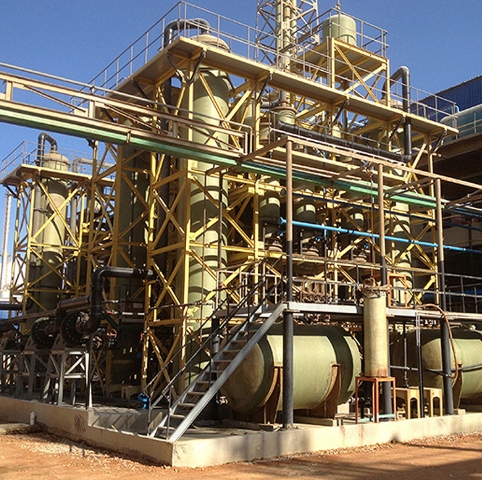
Contact Us
For information on setting up a production line for potassium/sodium sulfate or finding customized solutions that fit your requirements perfectly. The team at Aoliande is committed to assisting at every step. From expert advice to overseeing the installation process.





